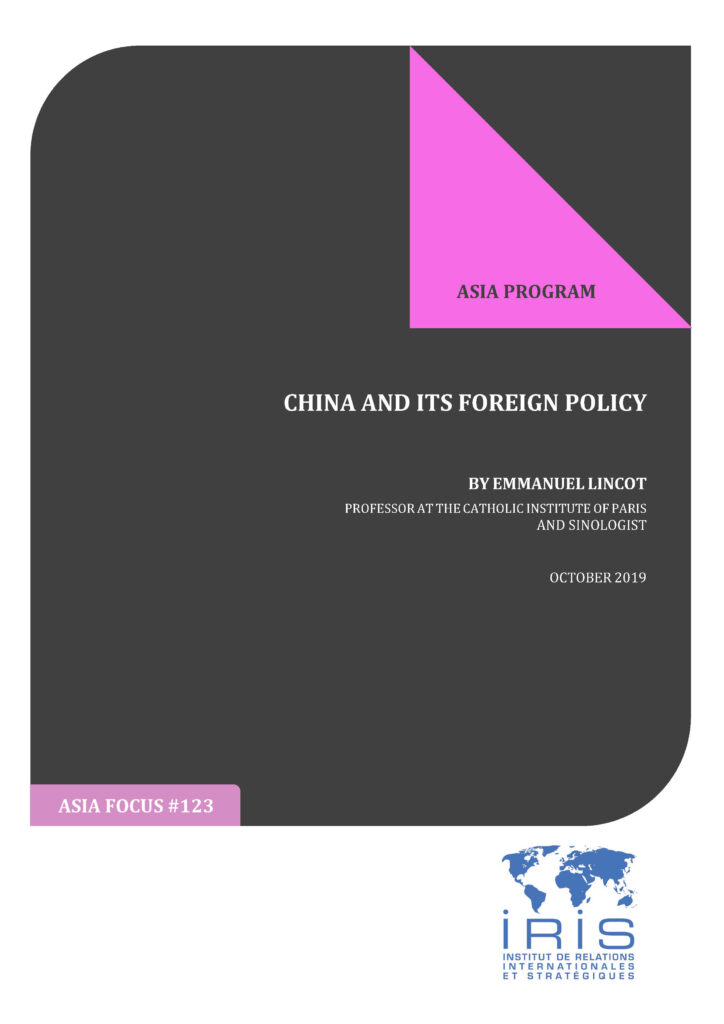Notes / Asia Focus
3 October 2019
China and Its Foreign Policy

Hybrid political system or “democratorship”, China has adopted the double use of a Hard and Sharp power by axing its priorities on the necessary establishment of a “cultural safety” (wenhuaanquan) . If its foreign policy choices stay largely subordinated to economic interests, culture, since the past twenty years, has become an essential side of Chinese diplomatic initiatives abroad. Not suffering from any form of dissidence, they respond to the need to create cultural industries that are unique to it in the audiovisual and digital domain but also in order to forge a speech allowing the reinterpretation of history serving the strength, Chinese of course . In this context, the policy of the New Road of Silk – also called OBOR (« One Belt One Road »; « Yi dai yi lu » in the Chinese language) – initiated in 2013 by Xi Jinping is both a commercial type of strategy and a cultural project with a global vocation. It aims to exploit deposits in the potentialities offered, for example, by the higher education for elites in the South. It relies on a culturalism postulate according to which China has its own values, not only neo-Confucian but also Marxism. These ones have a universal vocation that the State-party wants to promote with ambitious cultural diplomacy. To these first observations, is added another one. Since the 2000s, Chinese diplomacy is all the more proactive as the number of Chinese nationals abroad has steadily increased. Its nationals were less than 300.000 at the beginning of the 80s; in 2015 they were more than 125 million…

